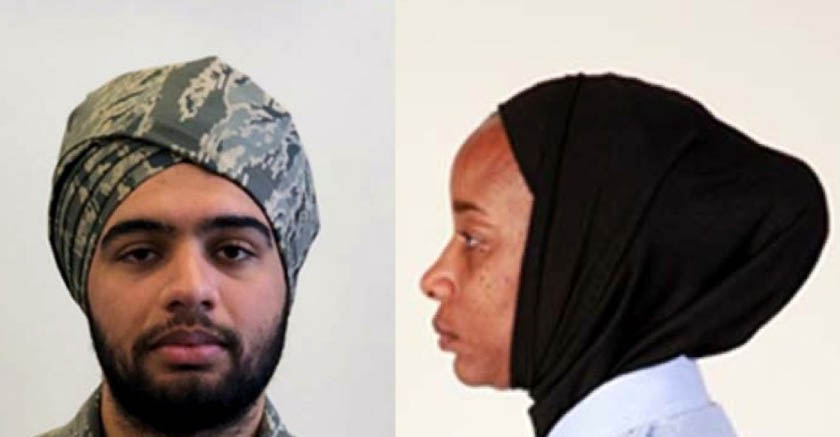US air force issues new guidelines on beards, turbans and hijabs

The US air force has said members who wish to grow beards for religious reasons or wear religious apparel such as turbans or hijabs can formally ask for waivers under an updated grooming policy.
The new guidelines allow service members to request waivers to wear religious apparel as long as they are "neat and conservative" and present a professional and well-groomed appearance.
The new guidance does not limit how long a religiously accommodated beard can be, but states that it must be rolled or tied so that it does not extend more than two inches below the chin.
Turbans, under-turbans and hijabs must be made of a "subdued material in a color that closely resembles the assigned uniform," the updated policy states.
Requests for beard, turban or hijab waivers should be approved, unless they involve a "compelling government interest", such as safety, or would negatively affect military readiness, unit cohesion, standards or discipline, the regulation states.
New MEE newsletter: Jerusalem Dispatch
Sign up to get the latest insights and analysis on Israel-Palestine, alongside Turkey Unpacked and other MEE newsletters
In recent years, the air force has granted several members permission to grow beards, wear turbans or hijabs in line with their religious beliefs.
In 2018, Staff Sergeant Abdul Rahman Gaitan became the first Muslim airman to receive a beard waiver for religious reasons, while Captain Maysaa Ouza became the first woman to wear a hijab.
And in June 2019, airman Harpreetinder Singh Bajwa became the first active-duty Sikh airman allowed to wear a turban, beard and long hair, which Sikhs tie in a bun and then cover with the turban.
Middle East Eye delivers independent and unrivalled coverage and analysis of the Middle East, North Africa and beyond. To learn more about republishing this content and the associated fees, please fill out this form. More about MEE can be found here.




